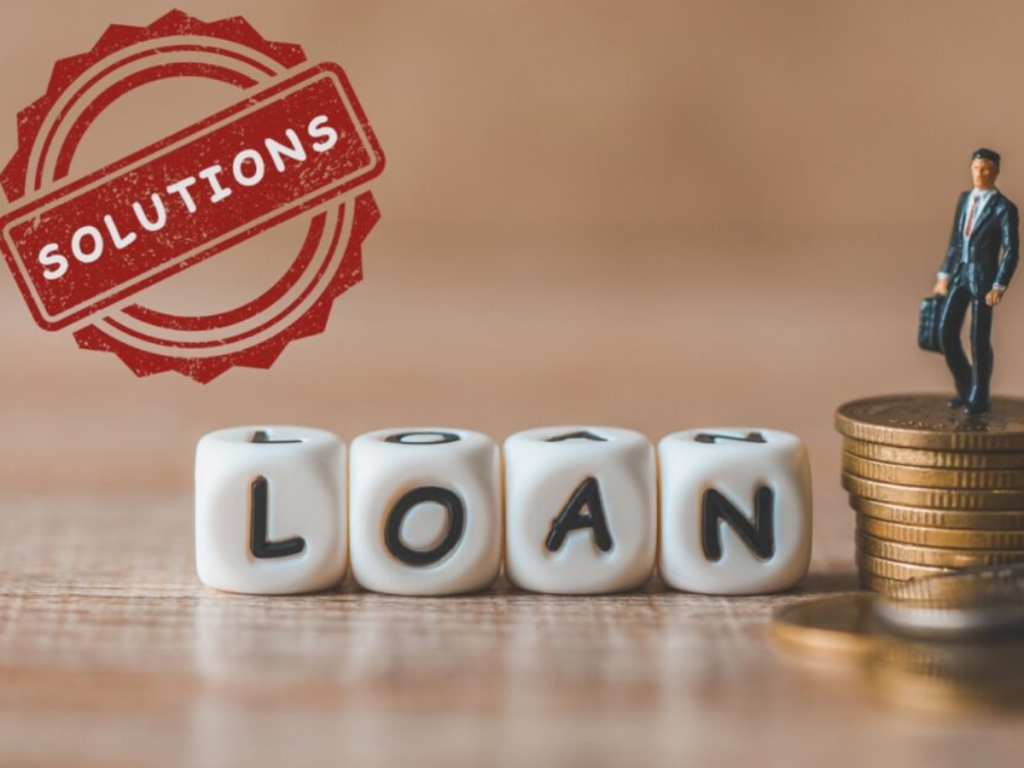Introduction
A personal loan can be a powerful financial tool when used wisely. It provides a lump sum of money that you repay over time, usually at a fixed interest rate, which can help you cover a variety of expenses or consolidate debt. However, taking out a personal loan is a significant decision, and it’s important to understand when it is the right choice for your financial situation. In this article, we’ll explore various scenarios where taking out a personal loan might be a good idea, as well as the potential advantages and risks involved.
Understanding Personal Loans
Before diving into the situations in which a personal loan may be beneficial, let’s first understand what a personal loan is. Personal loans are typically unsecured, meaning they don’t require collateral like a house or car. They are offered by banks, credit unions, and online lenders. Borrowers receive a lump sum of money, which they are required to pay back in installments over a set period, often with interest.
The flexibility of personal loans makes them appealing. They can be used for a variety of purposes, such as paying for home renovations, consolidating debt, covering medical expenses, or even financing a wedding. However, the terms, such as the interest rate and repayment schedule, can vary based on the lender and your creditworthiness.
1. Debt Consolidation
One of the most common reasons people take out personal loans is for debt consolidation. If you have multiple high-interest credit card balances or other loans, consolidating them into a single personal loan can help simplify your finances. By consolidating your debts, you are essentially combining them into one loan with a single monthly payment, often at a lower interest rate than what you were paying before.
This can be a good idea if you have high-interest debts that are difficult to manage. For example, if you have credit card debt with an annual percentage rate (APR) of 20% and you are only able to make the minimum payments, the interest can quickly accumulate, making it harder to get out of debt. With a personal loan, you may be able to secure a lower interest rate, reducing the total amount of interest you pay over time.
In addition, consolidating your debts can make it easier to track your finances, since you’ll have just one loan to manage rather than multiple payments to various creditors. This can help you stay on top of your payments and avoid missed payments, which can negatively affect your credit score.
2. Emergency Expenses
Life is unpredictable, and sometimes you may face unexpected expenses, such as a medical emergency, car repair, or home repair. These situations can be stressful, especially if you don’t have enough savings set aside to cover the costs. In such cases, a personal loan can provide a quick solution.
For example, if you need to undergo surgery that is not covered by insurance, a personal loan could help cover the medical bills. Similarly, if your car breaks down and you need to pay for repairs, a personal loan can provide the necessary funds to get your vehicle back on the road. Taking out a personal loan in these situations may be preferable to using high-interest credit cards or dipping into retirement savings, which can have long-term consequences.
That being said, it’s important to carefully assess whether a personal loan is the most cost-effective option. If the emergency expense is manageable and you have the ability to pay it off without taking out a loan, that may be a better approach. Additionally, you should consider the interest rate and repayment terms to ensure you can afford the loan.
3. Home Renovations or Improvements
Another common reason to take out a personal loan is for home renovations or improvements. Whether you’re remodeling your kitchen, updating your bathroom, or making your home more energy-efficient, personal loans can provide the necessary funds to tackle these projects. Many people prefer personal loans for home improvements because they don’t require the collateral that a home equity loan or line of credit would.
When considering a personal loan for home renovations, it’s important to carefully plan the project and assess whether the loan is worth taking out. Home improvements can increase the value of your property, but they are not always guaranteed to provide a return on investment. If the cost of the renovation exceeds the potential increase in home value, you may want to reconsider taking out a personal loan or explore other financing options.
Additionally, be mindful of the loan terms. Depending on the amount you borrow, the interest rate, and the repayment period, the loan could become a financial burden if you’re unable to keep up with the payments. Ensure that your home improvement project is financially feasible and that the personal loan fits within your budget.
4. Financing a Wedding or Special Event
Weddings, anniversaries, and other special events can be costly. If you don’t have enough savings to cover the expenses, a personal loan can help finance the celebration. Many couples opt for personal loans to pay for their wedding because they offer flexibility in terms of the amount borrowed and the repayment period.
Before taking out a personal loan for a wedding or special event, it’s important to carefully evaluate your financial situation. Weddings, in particular, can be expensive, and it’s easy to overspend on unnecessary items. Make sure to create a detailed budget and stick to it to avoid taking on more debt than you can comfortably repay. Additionally, consider whether taking on a loan for a wedding aligns with your long-term financial goals.
Taking out a personal loan for a wedding can also be a good option if you have an emergency or unexpected event that requires financing, such as a funeral or a milestone birthday. However, ensure that the loan amount is within your means and that you’ll be able to manage the monthly payments.
5. Building or Improving Your Credit Score
If you have a low credit score, a personal loan may help improve it, provided you manage the loan responsibly. Taking out a personal loan and making regular, on-time payments can demonstrate your ability to manage debt, which can positively affect your credit score over time. This can be particularly useful if you plan to apply for a mortgage, car loan, or other forms of credit in the future.
It’s important to note that while a personal loan can help improve your credit score, it can also hurt your credit if you miss payments or accumulate more debt than you can handle. Therefore, it’s crucial to ensure that you’re able to make timely payments before taking out a personal loan for this purpose.
If you decide to use a personal loan to build or improve your credit, aim for a loan with favorable terms, such as a low-interest rate and manageable monthly payments. Additionally, make sure to use the loan responsibly by keeping credit card balances low and avoiding taking on too much debt at once.
6. Paying for Education or Training
Education is a valuable investment, and taking out a personal loan to pay for tuition or other educational expenses can be a good way to improve your skills and increase your earning potential. While student loans are often used for education financing, personal loans can be a viable alternative if you don’t qualify for student loans or if you need additional funding for things like continuing education or professional development.
Before using a personal loan for education, consider the cost of the program and whether it aligns with your career goals. Additionally, consider the long-term financial implications of taking on a loan to finance your education. While education can increase your earning potential, it’s important to ensure that the loan payments will be manageable after graduation.
7. Large Purchases
Personal loans can also be used to finance large purchases, such as furniture, appliances, or electronics. If you don’t have the savings to cover these expenses upfront, a personal loan may allow you to make the purchase and pay it off over time. However, be cautious about using personal loans for non-essential purchases.
Before taking out a loan for a large purchase, evaluate whether it’s necessary to make the purchase at all. Sometimes, it’s better to save up for a big-ticket item rather than taking on debt, especially if the item doesn’t provide long-term value. Additionally, ensure that the loan terms are favorable, and consider whether you’ll be able to pay off the loan in a reasonable amount of time without straining your finances.
8. Consolidating Medical Debt
Medical expenses can quickly add up, especially if you are faced with unexpected health issues or treatment that is not covered by insurance. In some cases, personal loans can be an effective way to consolidate medical debt and make it easier to manage. By taking out a personal loan to pay off medical bills, you can often reduce the interest rate and create a more manageable repayment schedule.
However, before taking out a personal loan for medical debt, make sure that the interest rate is lower than the existing debt, and consider whether the loan terms are favorable. You should also explore other options for covering medical expenses, such as negotiating payment plans with your healthcare provider or seeking assistance through government programs.
Conclusion
Taking out a personal loan can be a good idea in certain situations, such as consolidating high-interest debt, covering emergency expenses, or financing home renovations. However, it’s important to approach personal loans with caution and carefully evaluate whether the loan is the best solution for your financial needs. Consider the interest rate, repayment terms, and your ability to repay the loan before making a decision. Additionally, it’s crucial to have a solid financial plan and ensure that taking on additional debt will not jeopardize your long-term financial stability.
By using personal loans responsibly and with proper planning, they can serve as a useful tool to achieve your financial goals. However, it’s important to weigh the potential risks and rewards before proceeding. Ultimately, the decision to take out a personal loan should be based on your unique financial situation and your ability to manage the loan over time.

